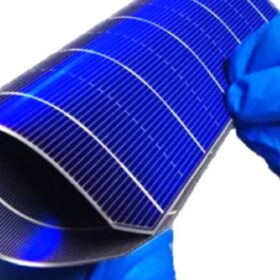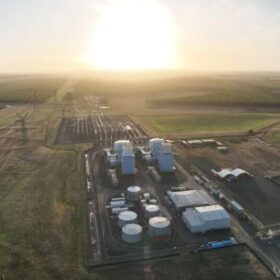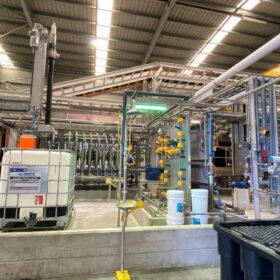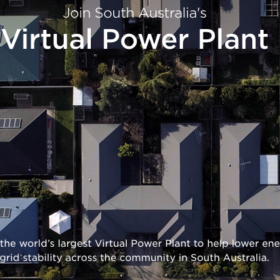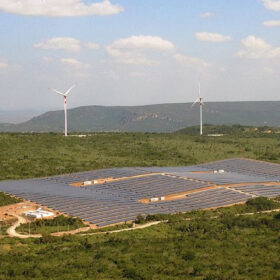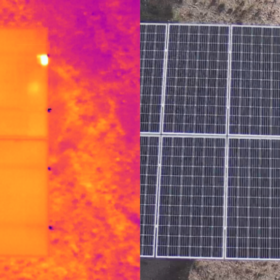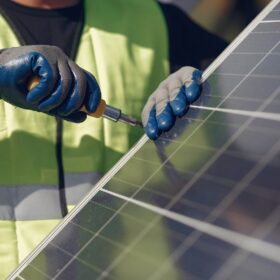Longi develops flexible heterojunction solar cell with 26.06% efficiency
Researchers from Western Australia’s Curtin University and Chinese module manufacturer Longi were part of an international team seeking silicon material savings and efficiency gains in the development of heterojunction PV devices. The cell achieved a certified power conversion efficiency of 26.06% with a thickness of 57 μm, with Germany’s Institute for Solar Energy Research confirming the result.
Origin presses go on 650 MWh grid-forming battery in Victoria
Origin Energy has issued a notice to proceed to EPC contractor Fluence for its 300 MW / 650 MWh battery energy storage project planned for Mortlake in southwest Victoria, progressing the company’s goal to build its renewables and storage portfolio to 4 GW by 2030.
Vanadium battery players partner on Queensland manufacturing supply chain
Australian minerals company Vecco Group will team with Japanese manufacturer Sumitomo Electric and Idemitsu Australia to build an ‘end-to-end’ manufacturing supply chain for vanadium flow batteries in north Queensland.
Demand sites join big batteries in making most of new FCAS markets
Big batteries now dominate the provision of the frequency control ancillary services required to maintain power system security in Australia’s main grid but demand side services company Viotas says there is room for more players in the increasingly lucrative market.
South Australian VPP project shortlisted for Premier’s Excellence Awards
South Australian premier Peter Malinauskas has announced the finalists for the 2023 Premier’s Excellence Awards. Amongst the finalists, the Department for Energy Mining South Australia has garnered recognition for its collaborative venture with Housing South Australia on the pioneering South Australia’s Virtual Power Plant initiative.
A cell maker’s survival guide
With solar production capacity expansion plans paused, bigger cell makers will weather the storm through a revised approach to new panel technologies. InfoLink’s Alan Tu says that low profits could also drive innovation and cost savings, pushing the industry to new heights.
The path beyond 5 TW
With the COP28 climate summit in Dubai resulting in a pledge of at least 11 TW of renewables generation capacity by 2030, Bruce Douglas, chief executive officer (CEO) of the Global Renewables Alliance (GRA), examines the outcomes of the conference and their likely impact on the solar industry.
Entering the renewables era
Following strong global solar installation figures in 2023, Alexa Capital co-founder and partner Gerard Reid sees enormous potential for a renewables revolution.
Research finds climate, degradation rethink on inverter lifespans required
New research from Belgium shows the importance of assessing inverter reliability by including climate-based PV panel degradation rates. The scientists found that, especially in hot and arid climates, PV inverters should be designed with parameters above the standard value.
Solar waste tipped to provide material supply security
Researchers from the University of New South Wales have rejected suggestions that end-of-life solar panels will create a “waste mountain” in Australia, saying instead that they could serve as valuable material reservoirs for future production.
